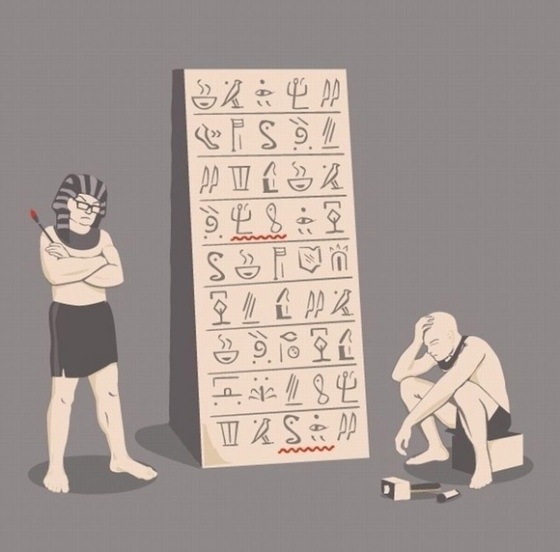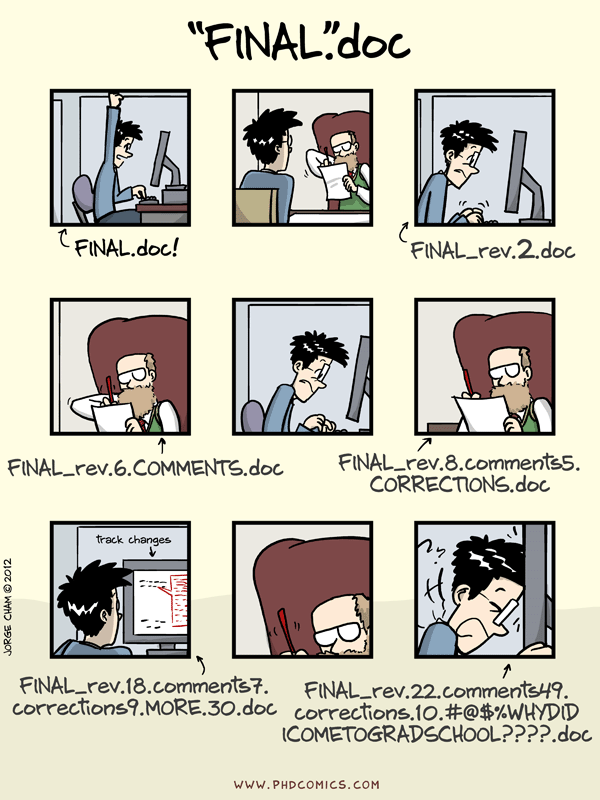When I saw this cartoon on the blog The Egyptiana Emporium, it made me reflect on how easy it is to revise what we write nowadays compared with in the past…

Once it was a matter of starting over carving in stone the entire tablet. Then it was “simply” a matter of typing one or more pages over, in a best case scenario. Today, we can go in and change one word, and the “worst case scenario” is having to print or e-mail the file again.
Despite that ease with which we can change things, we often do not. I regularly read student writing which is a “final” version of an essay, but it reads like a first draft. And even when students are required to submit a first draft and then revise it, the final version turns out to have changed little from the earlier draft, if at all. (And professors can compare the different drafts in programs like Microsoft Word and see what changes have and have not been made).
Most of us like feeling finished – although this depends a lot on personality type. Our tendency to think that we are done with something before it is realistic or appropriate to do so is illustrated in the latest PhD Comic:
We do the same with our worldviews. How many times have we thought that we just had a couple of loose ends to tie up, and we’d have as complete and accurate an understanding of the way the world works, and our place in the universe, as it is possible for a human being to have?
We have a penchant as human beings for premature finality. The most useful thing we can do is to recognize those circumstances – or doctoral supervisors – which require us to revise what we previously wrote or though for what they are: not frustrations to be avoided, but opportunities to revise and improve which we desperately need if what we really want is not merely to be done, but to be correct, to be as close to the truth as we can.
To conclude, let me mention a study that Joel Watts recently highlighted on his blog, which suggests that the long-term impact of scholarly articles which were rejected and revised before eventually being published is, on average, greater.
When we are forced to revise, it is to our benefit. And so we should learn to resist the temptation of premature finality as much as we can.













